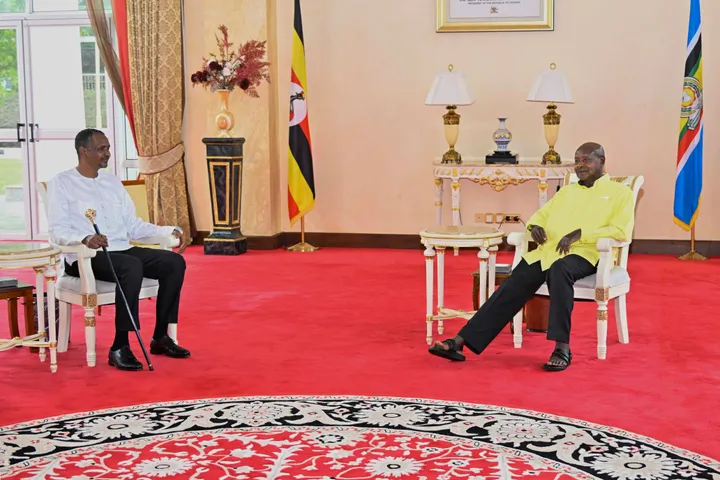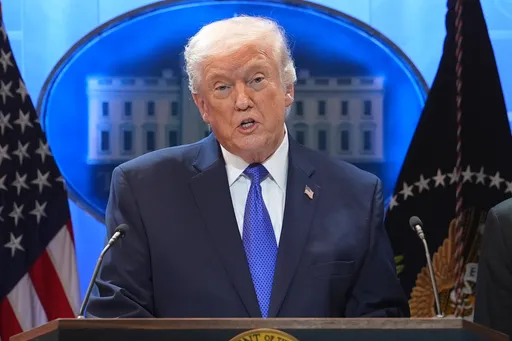China is suspected of building a Cambodian naval base, raising US concerns of its military footprint in the South China Sea.
Last Wednesday, in a show of “iron-clad” relations, China and Cambodia broke ground on the Ream Naval Base, which Cambodian officials say will be renovated with Chinese aid money.
They dismissed claims that Beijing seeks to use it as a military outpost.
But the US media is suggesting something different. Quoting sources, Washington Post reported last week that Beijing was clandestinely developing a facility in Cambodia and that the People's Liberation Army of China (PLA) would be in charge of the facility in the Gulf of Thailand.
Comments by unnamed officials suggest that Beijing plans to maintain and develop its military presence in the northern part of Cambodia's Ream Naval Base, which it has the exclusive rights to use.
A naval facility in the Gulf of Thailand, which according to preliminary estimates could accommodate large warships, is seen as an important component of China's desire to strengthen its presence near key sea lanes in Southeast Asia.
Beijing, however, has already called the Post’s report an act of disinformation, claiming that Washington is deliberately smearing Cambodia by engaging in "classic psychological terror" against it.
Playing hide-and-seek
There was a supposition that the PLA might establish themselves in the Gulf of Thailand years ago, when The Wall Street Journalreported on the signing of a secret agreement by Phnom Penh and Beijing that gave the Chinese army the ability to use the infrastructure of Ream.
The PRC at the time rejected speculation about exclusive military use, noting that the Cambodian side had simply been assisted with military training and logistical equipment at the site.
According to Washington's assumption, both countries made efforts to disguise the PLA's presence in Ream. For example, foreign delegations visiting the base were only allowed access to pre-arranged locations. Thus, when US Undersecretary of State Wendy Sherman visited the facility during a trip to the region last year, her movements were "very restricted," US diplomats pointed out.
It was also noted that the PLA military men were trying to wear uniforms similar to those worn by their Cambodian counterparts to avoid suspicion from outsiders. "What we are noticing is turning into a very clear and consistent series of attempts to confuse and conceal both the ultimate objective and the extent of the military involvement," US officials claim.
The secrecy surrounding the base may also be due to the Cambodian authorities' concerns regarding domestic reaction to such moves. The country's constitution does not allow the construction of foreign military bases on its territory, and any such idea is capable of arousing strong opposition.
Against this backdrop, Cambodia will want to avoid being branded as subordinate to China.
Phnom Penh walks a fine line between yielding to the major Asian power and distancing itself from Beijing’s orbit of influence, experts say. Last month it fervently supported a US-ASEAN summit in Washington, and in March it joined most countries at the UN General Assembly in condemning Russian actions in Ukraine.
At the same time, Chinese influence over Cambodia has been steadily growing. This is happening through aid and investment, and such investments will sooner or later require a return.
Power projection
The PRC’s naval presence in Cambodia is its second strategic outpost abroad. In 2017, Beijing opened a logistical support point for its navy in Djibouti, which is widely seen as laying the groundwork for the militarisation of the Horn of Africa and the projection of Chinese power.
Despite the announced purpose of the Djibouti point, Western experts have regarded it as a potential base, which gave them a reason to call the PRC's tactic of spreading its dual-use facilities "the Djibouti strategy".
In studies on the PRC's military might, the Pentagon warned that it was exploring the idea of expanding the network of army sites needed to support "naval, air, land, cyber and space forces," and saw great potential in Cambodia, Thailand, Singapore, Indonesia, Pakistan, Sri Lanka, Tanzania and even the United Arab Emirates.
A presence in these countries, military men believe, is necessary to thwart US operations and support action against them if the occasion arises.
Hudson Institute senior fellow John Li noted that it is important for Beijing to break the chain of pro-American countries that limit its access to the Philippine Sea and the Pacific Ocean.
"If the US does not interfere in China's military mission with its whole-of-government approach to the issue of economic support for countries in the South Pacific, America and its allies will cede commercial access, freedom of military navigation and strategic influence over the world's largest water resources," the expert warned.
As for Cambodia, as Andrew Eriksson, a professor at the US Naval War College, points out, its problem is that the country is trying to maximise strategic cooperation with the PRC, but at the same time generate minimal opposition at the regional level.
"This contradiction will be revealed by the irrefutable development of this facility," the analyst summarised, speculating about the Cambodian base.























